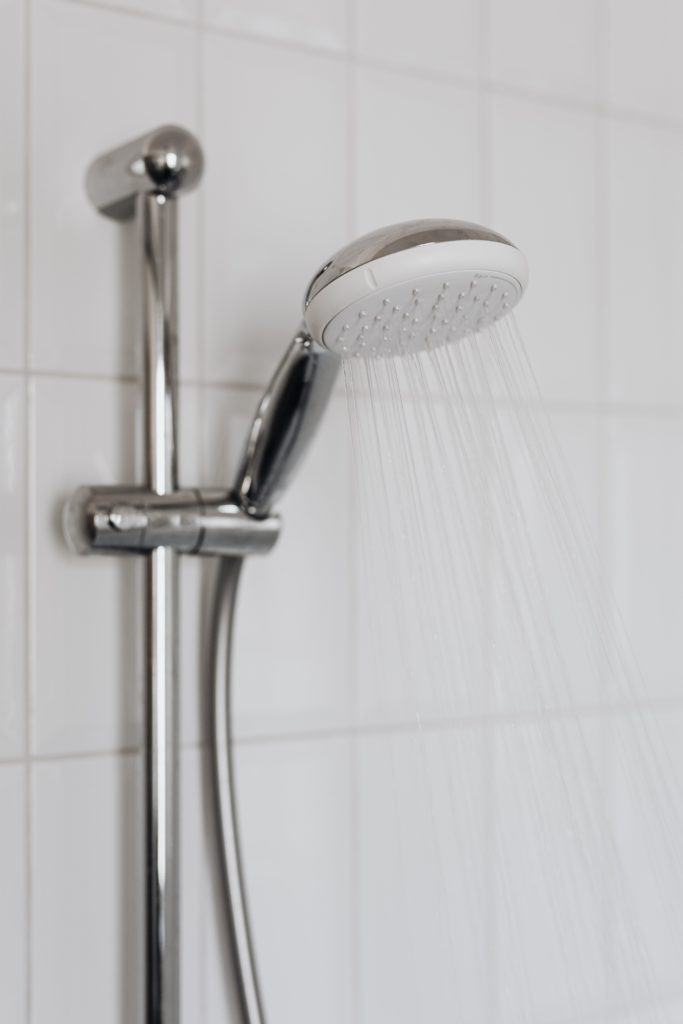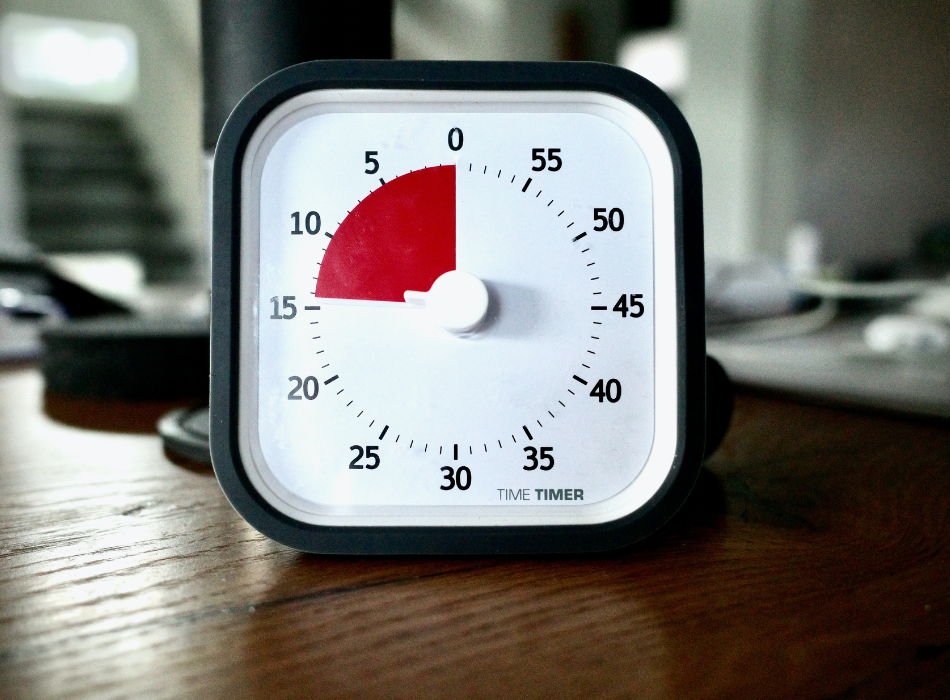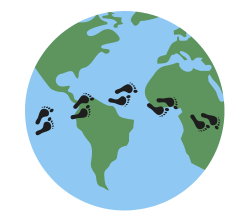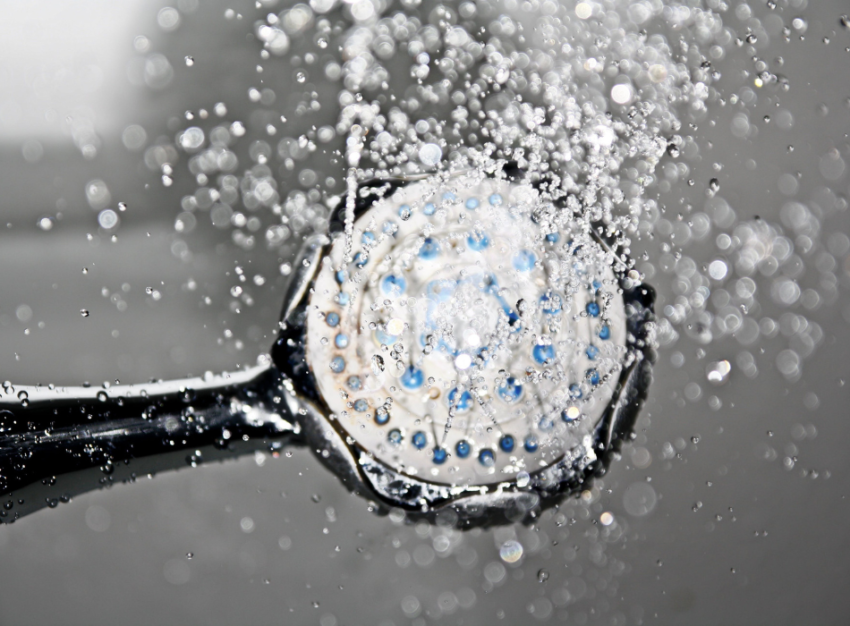Anyone who’s ever lived with me will tell you that I take long showers (I won’t tell you how long). It’s partly a form of inertia: I have trouble motivating myself to start a shower, then, once I start, it’s hard to stop. I also enjoy the feeling of standing under hot water. It’s relaxing and clears my thoughts.
I do realize that long showers are a problem, environmentally speaking, so last year I started timing how long my showers were. I figured that you can’t modify what you don’t measure. My shower duration hasn’t changed much in that time, apart from generally taking shorter showers in the summer.
Sometimes, I’ll even try playing little games with myself, like “if you take a shower that’s this short, this thing you’ve always wanted will happen.” Needless to say, it hasn’t worked.
There seems to be a disconnect between my knowledge of the statistics about wasting water and my behaviour. I thought it was time to take further action.
Why take shorter showers?

Showers use a substantial amount of water. In Canada, water for bathing accounts for 35 per cent of domestic water use. Water Research Foundation’s Residential End Uses of Water, Version 2 report examined data from 23 utilities in the U.S. and Canada. Among indoor fixtures, showers used the second-highest quantity of water (28.1 gallons per household per day or 20 per cent of indoor water use), following only toilets.
Standard showerheads use 2.5 gallons (9.5 litres) of water per minute. If the average American spends eight minutes in the shower, that means around 20 gallons of water per shower and 7,300 gallons per year (assuming one shower a day). Shaving even a minute or two off your average shower length will generate significant water savings—not to mention lower your utility bills.
Canadians tend to behave like we have plenty of fresh water available. It’s true that Canada has approximately 7 per cent of the world’s renewable freshwater supply. However, around 60 per cent of that water supply flows north, while the vast majority of the population lives in the south. In addition, water supply can be limited in certain regions or at certain times of year, causing shortages. Taking shorter showers is one way to reduce pressure on our water supply.
How to take shorter showers
To write this post, I tried a few different suggestions I found online for reducing the length of showers. Here they are along with how they worked out for me.
Time yourself and set a goal
For anyone looking to take shorter showers, I would recommend first timing your showers to find out their average length and any trends. The important next step is to set a goal for reducing your shower length. Challenge yourself by gradually decreasing this number as you get faster at taking showers.
Set a timer

This option is similar to the first one but involves setting one or more timers to go off when you’re in the shower. This trick works in two ways: the alarm reminds you how much time has passed (and serves as a reminder to wrap things up), and you go quicker because you don’t want to be interrupted in the middle of showering to go turn off a timer.
I didn’t love this option because of the constant feeling that the timer could go off any second and because I got water on the bathroom floor when I went to turn off the timer. But the time pressure was effective: my showering using this technique was noticeably faster.
Make a shower playlist
Try making a playlist of a few favourite songs that add up to your desired shower length. As you shower, you’ll know where you are in the playlist and approximately how much time you have left.
I liked this method because I chose bouncy music and because I had a clearer sense of how much time was passing. My competitive streak was also sparked as I raced to finish before the end of the playlist. When I used this method, I had my shortest shower since I started timing them.
A couple of things to keep in mind with this method are making sure your music player stays dry and being considerate of the people you live with.
Set the water on a colder temperature
Using cold water would be a sure-fire way to have a shorter shower (not to mention save energy). However, if you don’t have that kind of discipline, setting the water temperature a bit cooler can still speed up the pace of your shower.
I saw some impact with using less-hot water, but I imagine this would be even more effective if you use lukewarm or cool water!
Consider your showering method

When thinking about how to take shorter showers, part of the answer is how you shower. Get your supplies, like hair products and soap, ready before you turn on the water. Don’t start doing other things as you wait for the water to heat up—you may get distracted. On a related note, keep tasks like brushing your teeth and shaving out of the shower.
Follow the same routine every time so that you don’t need to stop and think about what you’re doing. Be efficient. For example, as the shampoo is working its magic on your hair, you can wash your body.
One very quick showering method is the Navy shower. In this technique, you get wet for 30 seconds, lather yourself with soap and shampoo, then quickly rinse.
Consider how you wash your hair
Anyone with long hair knows that washing your hair takes up a good portion of your shower time. Using a two-in-one product (shampoo and conditioner) is an easy way to save time and water since you only need to rinse your hair once.
Consider as well not washing your hair every day. In most cases, you can go two to three days between washing your hair.
Reward yourself for taking short showers
Giving yourself something to look forward to at the end of the shower may motivate you to shower quickly. I sometimes think I would shower more quickly if there were a fluffy bathrobe and mug of hot chocolate waiting for me afterward. Though that may not happen, you can still do something that you enjoy after your shower as an incentive.
Alternatively, if you take several short showers in a row and smash your goal for shower length, why not treat yourself?
The shorter showers challenge
Shower length is a sustainability issue that I’ve struggled to make progress on. It’s still a work in progress, but I found a few of these tips and tricks surprisingly helpful for reducing my shower time. I suspect the most effective approach would be combining several of these methods, such as listening to a playlist while using colder water.
I want to know: How do you speed up your shower routine?
Categories and tags:
Share this post:


A great way to save water and $$ is: get yourself wet, and turn off the shower; shampoo your hair and scrub yourself down (and take as long you want, since the water is off); turn on the shower and rinse.
Yes, turning the water off in the middle saves water for sure. As long as you don’t get distracted when you’re rinsing yourself off!
I saw a program about drought- stricken Australia. Most people there place buckets/bowls in the shower with them. They use them to rinse the soap off or water the garden or whatever .
That’s a great idea. I’m sure a situation like that would force you to get creative!